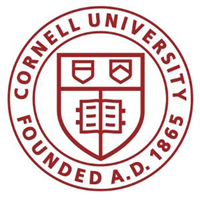What do they do?
Provide technical assistance regarding the conservation of soil, water, forests, or related natural resources. May compile data pertaining to size, content, condition, and other characteristics of forest tracts under the direction of foresters, or train and lead forest workers in forest propagation and fire prevention and suppression. May assist conservation scientists in managing, improving, and protecting rangelands and wildlife habitats.
Also known as:
Biological Science Aide, Forest Technician, Forestry Aide, Forestry Technician (Forestry Tech), Natural Resources Technician, Resource Technician, Timber Appraiser
-
0%
Change
Ranks #44 in job growth rate40Job Openings
Ranks #32 in net job growth
-
University of Vermont
Burlington, VT
-
SUNY College of Environmental Science and Forestry
Syracuse, NY
-
Duke University
Durham, NC
-
Cornell University
Ithaca, NY
-
Clark University
Worcester, MA
Looking for colleges that offer a specific major? Use the College Match Tool to find your best-matched schools and discover your estimated Net Price!
- Doctorate or Professional Degree (3%)
- Master's degree (11%)
- Bachelor's degree (35%)
- Associate's degree (14%)
- Some college, no degree (20%)
- High school diploma equivalent (14%)
- Less than high school diploma (4%)
Most Popular Majors that prepare Forest and Conservation Technicians
-
#1
-
Degrees Granted
9,112
-
Female Students
5,380
-
Male Students
3,732
-
Median Starting Salary
$43,300
-
-
#2
-
Degrees Granted
2,778
-
Female Students
1,580
-
Male Students
1,198
-
Median Starting Salary
$47,400
-
-
#3
-
Degrees Granted
820
-
Female Students
280
-
Male Students
540
-
Median Starting Salary
$41,500
-
-
#4
-
Degrees Granted
230
-
Female Students
53
-
Male Students
177
-
Median Starting Salary
$41,500
-
-
#5
-
Degrees Granted
113
-
Female Students
52
-
Male Students
61
-
Median Starting Salary
$41,500
-
People in this career often have these skills:
- Active Listening - Giving full attention to what other people are saying, taking time to understand the points being made, asking questions as appropriate, and not interrupting at inappropriate times.
- Critical Thinking - Using logic and reasoning to identify the strengths and weaknesses of alternative solutions, conclusions, or approaches to problems.
- Reading Comprehension - Understanding written sentences and paragraphs in work-related documents.
People in this career often know a lot about:
- Public Safety and Security - Knowledge of relevant equipment, policies, procedures, and strategies to promote effective local, state, or national security operations for the protection of people, data, property, and institutions.
- English Language - Knowledge of the structure and content of the English language including the meaning and spelling of words, rules of composition, and grammar.
- Customer and Personal Service - Knowledge of principles and processes for providing customer and personal services. This includes customer needs assessment, meeting quality standards for services, and evaluation of customer satisfaction.
- Law and Government - Knowledge of laws, legal codes, court procedures, precedents, government regulations, executive orders, agency rules, and the democratic political process.
- Administration and Management - Knowledge of business and management principles involved in strategic planning, resource allocation, human resources modeling, leadership technique, production methods, and coordination of people and resources.
- Geography - Knowledge of principles and methods for describing the features of land, sea, and air masses, including their physical characteristics, locations, interrelationships, and distribution of plant, animal, and human life.
People in this career often have talent in:
- Oral Comprehension - The ability to listen to and understand information and ideas presented through spoken words and sentences.
- Oral Expression - The ability to communicate information and ideas in speaking so others will understand.
- Problem Sensitivity - The ability to tell when something is wrong or is likely to go wrong. It does not involve solving the problem, only recognizing that there is a problem.
- Information Ordering - The ability to arrange things or actions in a certain order or pattern according to a specific rule or set of rules (e.g., patterns of numbers, letters, words, pictures, mathematical operations).
- Written Comprehension - The ability to read and understand information and ideas presented in writing.
- Deductive Reasoning - The ability to apply general rules to specific problems to produce answers that make sense.
- Inductive Reasoning - The ability to combine pieces of information to form general rules or conclusions (includes finding a relationship among seemingly unrelated events).
- Near Vision - The ability to see details at close range (within a few feet of the observer).
- Far Vision - The ability to see details at a distance.
People in this career often do these activities:
- Cultivate land.
- Record research or operational data.
- Manage agricultural or forestry operations.
- Train personnel in technical or scientific procedures.
- Supervise scientific or technical personnel.
- Advise others on management of emergencies or hazardous situations or materials.
- Develop technical or scientific databases.
- Inspect condition of natural environments.
- Collect biological specimens.
- Survey land or properties.
- Prepare documentation for permits or licenses.
- Prepare maps.
- Advise others about environmental management or conservation.
- Collect environmental data or samples.
- Set up laboratory or field equipment.
This page includes data from:

 Occupation statistics: USDOL U.S. Bureau of Labor Statistics Occupational Employment Statistics
Occupation statistics: USDOL U.S. Bureau of Labor Statistics Occupational Employment Statistics









